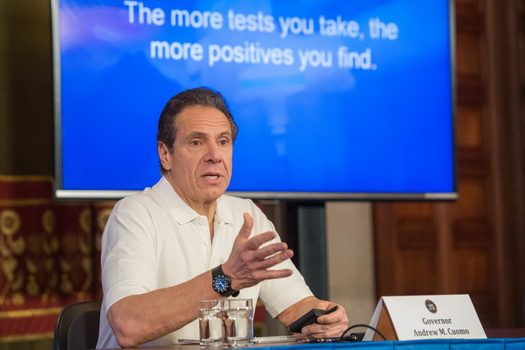
Additional Restrictions To Lock Down New York, Excludes Essential Services
On Friday, March 20th, Governor Andrew M. Cuomo issued guidance as to which businesses are considered essential and may remain in operation during the latest restrictive measures ordered for New York State.
The essential services include those which provide care for the sick, and includes research and laboratory services, hospitals, walk-in-care health facilities, emergency veterinary and livestock services, elder care, home health care workers or aides for the elderly, doctor and emergency dental, nursing homes, or residential health care facilities or congregate care facilities.
Medical supply businesses which are considered essential include medical wholesale and distribution, medical supplies and equipment manufacturers, and providers.
Essential infrastructure which may remain open includes utilities including power generation, fuel supply and transmission, public water and wastewater, telecommunications and data centers, airports/airlines, bus, rail, or for-hire vehicles, garages, hotels, and places of accommodation.
Essential manufacturing includes food processing, manufacturing agents, including all foods and beverages, chemicals, medical equipment/instruments, pharmaceuticals, sanitary products, telecommunications, microelectronics/semi-conductor, agriculture/farms, and household paper products.
Essential retailers include grocery stores including all food and beverage stores, pharmacies, convenience stores, farmer’s markets, gas stations, restaurants (but only for take-out/delivery), hardware and building material stores.
Essential services includes trash and recycling (collection, processing and disposal), mail and shipping services, laundromats, building cleaning and maintenance, child care services, auto repair, warehouse/distribution and fulfillment, funeral homes, cemeteries, storage for essential businesses, animal shelters, and news media.
Financial institutions, including banks, insurance, payroll, accounting and services related to financial markets are considered essential.
Homeless shelters, congregate care facilities, food banks, human services providers in state-licensed or funded voluntary programs are included is essential services, as are construction, including skilled trades such as electricians, plumbers, and other related construction firms and professionals for essential infrastructure or for emergency repair and safety purposes.
Defense and national security-related operations supporting the U.S. Government or a contractor to the US government, law enforcement, fire prevention and response, building code enforcement, security emergency management and response, building cleaners or janitors, general maintenance whether employed by the entity directly or a vendor, automotive repair, and disinfection may remain open.
Businesses and entities that provide other essential services must implement rules that help facilitate social distancing of at least six feet.














